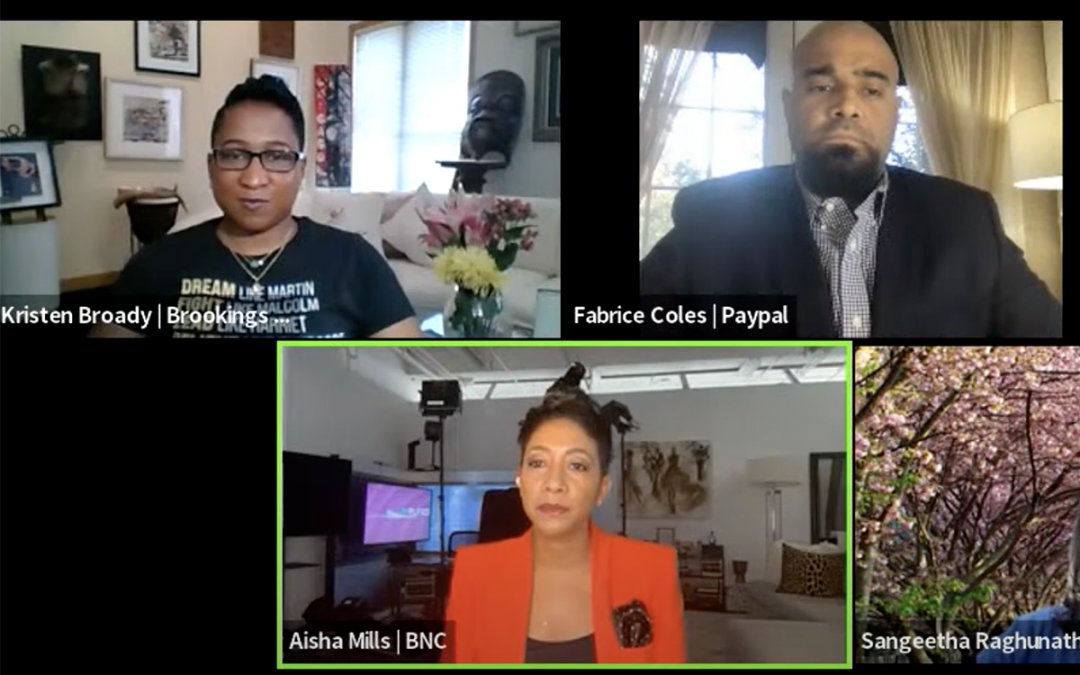WASHINGTON — The right technology could aid in mitigating the racial gap in financial health and wealth by making these services more accessible to underbanked communities, panelists shared in a webinar on Wednesday.
“What fintech really does is it enables community based on consumer segments rather than geography and that just provides a lot more options to people,” said Sangeetha Raghunathan, who serves as general counsel and chief compliance officer at Earnin, during a virtual conversation hosted by Brookings Metro.
For many years, Black and Latino communities were considered underbanked because they lacked access to conventional financial institutions. In fact, studies have shown that the unbanked and underbanked rates were the highest among Black adults with Latino adults coming in second.
“There’s actually at least a dozen studies showing the same racial disparities in credit scores for Black and Latinx consumers to a lesser extent,” said Chi Chi Wu, who serves as a Staff Attorney at National Consumer Law Center.
Fintech, which exists online, allows people to partake in financial services that were not available to them previously due to geographical restraints, among other issues. Now, this technology makes these services more accessible.
“Today, anybody with a phone has access to the same high-quality services,” said Raghunathan, “and that creates services that cater to a number of different communities that have not been served by traditional financial institutions.”
Although fintech provides an opportunity to improve the financial health and wealth of underserved communities, some worry about the regulations that exist for these companies — and some view regulation as a cornerstone to responsible fintech.
“Responsible fintechs are not afraid of regulation. What they support is smart regulation. That means regulation that is good for consumers and good for the companies,” said Raghunathan.
Another concern is that some view fintech as the sole solution to this problem. While fintech provides an opportunity to lessen the racial wealth gap, it only serves as one step of many.
“I’ve worked at several HBCUs and just found that they didn’t have all of the information about credit or about loans,” said Kristen Broady, who is a fellow at Brookings Metro. “I think that more needs to be done, not just with colleges, but with high schools so that people can learn about credit and all of these products before they start needing them and using them.”

